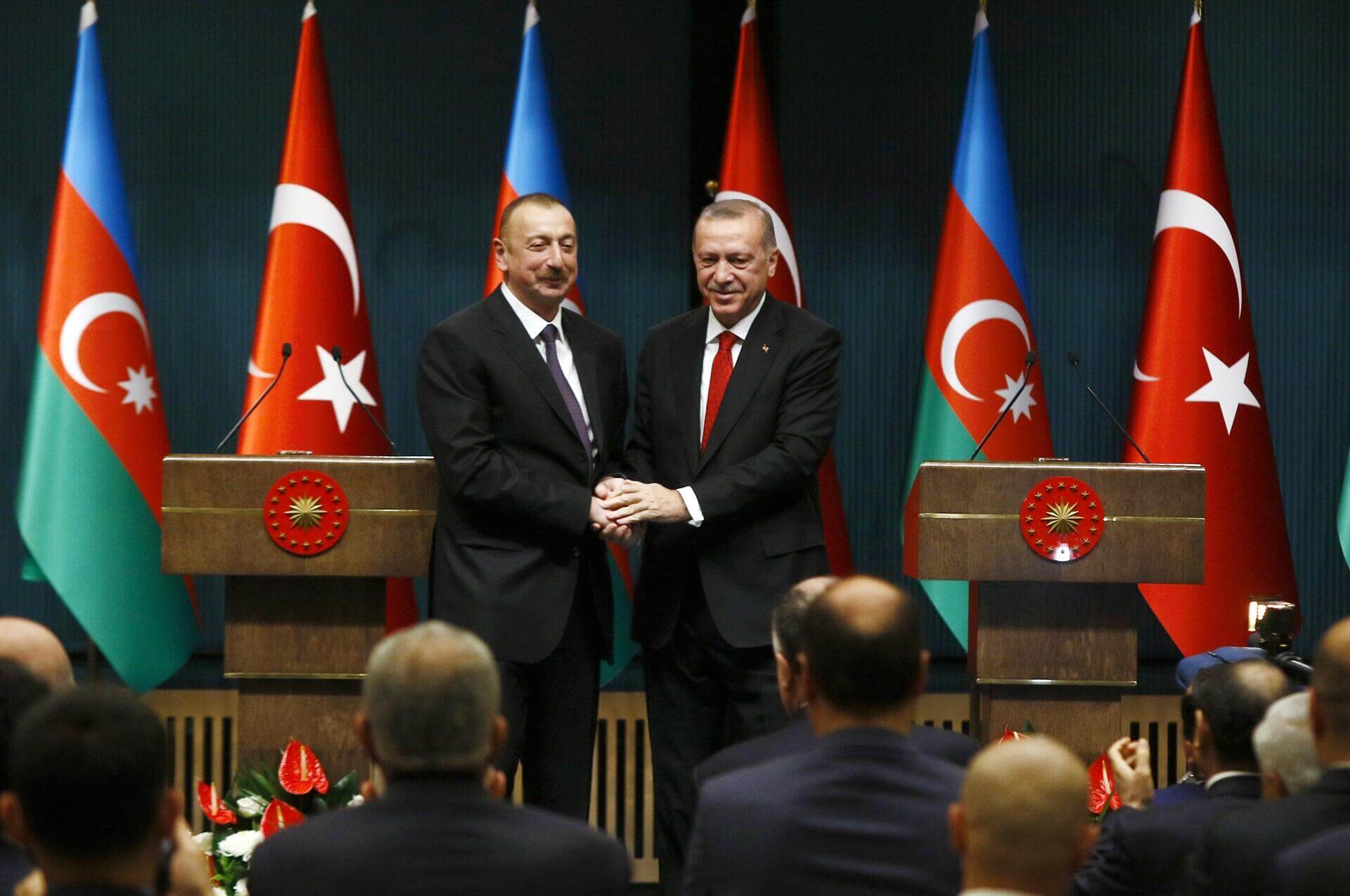The Turkish National Security Council in a Wednesday statement reiterated its support to Baku in its ongoing border conflict with Yerevan. The statement, which followed a council meeting headed by Turkey’s President Recep Erdoğan in Ankara, condemned the Armenian “occupation” of “Azerbaijani territory”, calling upon the country to withdraw its forces and halt aggression in the region.
On Monday, Turkey’s defence minister Hulusi Akar received Azerbaijani deputy defence minister Ramiz Tahirov and Nakhchivan Autonomous Republic army chief Kerem Mustafayev in Ankara. Nakhchivan is an Azerbaijani enclave that borders Turkey, Armenia, and Iran. At the meeting, which was also attended by top Turkish ministry officials, Akar stressed upon the importance of brotherhood and cooperation between the two countries. He further highlighted that the Turkish Armed Forces would continue to “do what they have to do” to support Baku and that “no one should doubt that”. In the past, Turkey has also committed to providing arms and military equipment to Azerbaijan, with whom it shares religious, linguistic, and ethnic ties.
The former Soviet Republics have been engaged in constant conflict over the disputed Nagorno-Karabakh region since the fall of the Soviet Union. Currently, the region is internationally recognized as a breakaway state and a part of Azerbaijani territory and is governed as the self-declared Republic of Artsakh headed by elected leader Arayik Harutyunyan.
On the other hand, Ankara’s rival Moscow has openly backed Yerevan against Baku. Russia has historically seen itself as a protector of Orthodox Christians and Slavic nations, thereby strengthening its support for Armenia. According to Matthew Vryza, a senior fellow at the Atlantic Council and former US envoy to Azerbaijan, “Russia has traditionally supported Armenia very much. Traditionally, it will. Historically, Armenia has looked at Russia as its protector. That goes back to the fact that those are primarily Orthodox Christian countries. It also goes back to all the 1915 events and also Nagorno-Karabakh [dispute].”
The recent flare up between Armenia and Azerbaijan has, therefore, become a new point of rivalry between Moscow and Ankara, as the two sides signal their strategic allyship to opposite sides in the conflict. The corridor also holds immense importance for the two countries’ access to energy. Turkey and Russia are already simultaneously backing rival factions in the Libyan conflict despite signalling, several times, their intentions of drawing up a joint non-military ceasefire agreement for the war-torn country.
More than 16 people have been killed in clashes between the neighbours in the South Caucuses since July 12, with both sides accusing the other of starting the offensive.
Turkish National Security Council Reiterates Support to Azerbaijan in Armenia Conflict
On the other hand, Moscow has been increasingly vocal about its support to Armenia
July 23, 2020

Presidents Recep Erdoğan and Ilham Aliyev in 2018. SOURCE: HURRIYET DAILY NEWS
